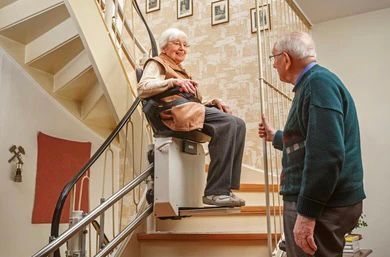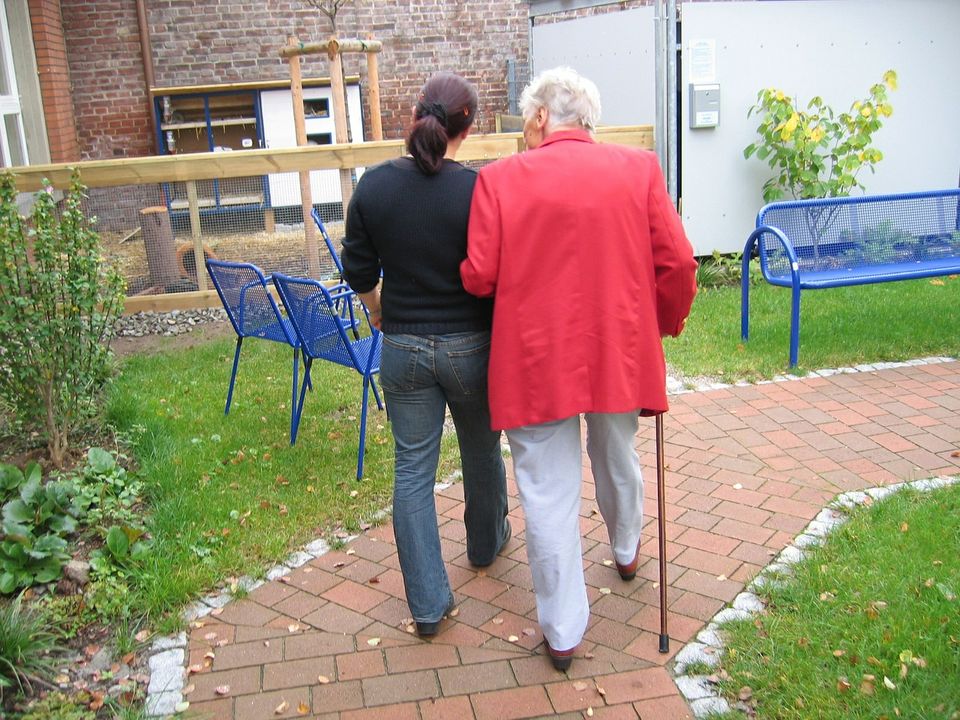What benefits can I get if I have home care needs?

In this article, we introduce some of the many benefits which are available to people who have care needs or have a disability. These benefits are there to help you with the extra costs so that you can live independently, safely, and comfortably in your own home. You may even be able to keep receiving them if you move into a care home.
The first benefit you will come across is the personal health budget or self-directed support as it is known in Scotland. This is an amount of money that is there to support the health and wellbeing of the person who needs home care. It is agreed upon by you and your local authority (and/or other funding streams, such as the CCG). This budget will be calculated on the basis of how much it would cost to arrange care and support in your area to enable you to live at home, this includes adaptations that your home may need. A care needs assessment and financial assessment are carried out to determine how much you are entitled to, by evaluating your personal health and wellbeing needs, the health outcomes you want to achieve, and how you plan to spend the money from the budget - from hiring a personal care assistant to home adaptations such as stairlifts and handrails.
The personal health budget takes into consideration all the benefits that you are entitled to and so it is important to make sure you claim everything you can, otherwise you’ll end up spending more money than you need to. The below benefits may be available to you if you meet the specific criteria.
Personal Independence Payment (PIP)
Personal Independence Payment (PIP) has replaced Disability Living Allowance and is for people aged 16 to 64. You can make a PIP claim if you are having difficulty getting around and doing everyday tasks.
This benefit is not affected by your income or savings, it is tax-free and paid to you every four weeks. According to GOV.UK, you could receive between £23.20 and £148.85 a week and the amount you get depends upon how your condition affects you, not the condition itself.
There are two parts to PIP, these are:
- Daily living part - this is paid if you need personal care.
- Mobility part - this is paid if you need help getting around.
As of 2019/2020, the standard weekly rate of the daily living part is £58.70 whilst the enhanced weekly rate is £87.65. As for the mobility part, the standard weekly rate is £23.20 and the enhanced weekly rate is £61.20.
To find out more about PIP, including information on how to claim, please visit GOV.UK - if you live in Scotland, England, or Wales. For people who live in Northern Ireland, please visit nidirect.
Disability Living Allowance
The PIP may have replaced this benefit for people between the ages of 16 and 64, but the Disability Living Allowance (DLA) is still available to people who are claiming on behalf of a child under the age of 16.
Similar to a PIP, this benefit is not affected by your income or savings, it is also tax-free and paid to you every four weeks. There are also two parts to this benefit which also cover similar criteria as a PIP.
The two parts to DLA are:
- DLA care component - this helps with the extra costs of personal care.
- DLA mobility component - this helps with the extra costs of getting around.
As of 2019/2020, the higher weekly rate of the DLA care component is £87.65, the middle weekly rate is £58.70, whilst the lower weekly rate is £23.20. As for the DLA mobility component, the lower weekly rate is £23.20 and the higher weekly rate is £61.20.
To find out more about DLA, including information on how to claim, please visit GOV.UK - if you live in Scotland, England, or Wales. For people who live in Northern Ireland, please visit nidirect.
Attendance Allowance
The Attendance Allowance is for people who have reached state pension age (65 and over) and are in need of help with personal care due to a disability or illness. The disability must mean that they need help in caring for themselves or need to be supervised to ensure the safety of themselves or others around them, and they should have needed the help for at least six months (unless terminally ill).
This benefit focuses on personal care only and does not include mobility needs. It is also tax-free and not affected by any income or savings that you have. It is based on the care you need and not the care you are receiving.
For people who are terminally ill, they do not have to wait six months to receive this benefit and if you qualify for the benefit you will automatically receive the higher rate.
The higher weekly rate of Attendance Allowance is £87.65 and the lower weekly rate is £58.70.
To find out more about Attendance Allowance, including information on how to claim, please visit GOV.UK - if you live in Scotland, England, or Wales. For people who live in Northern Ireland, please visit nidirect.
Other benefits that you may be entitled to
- Discounts in and exemptions from Council Tax: If you are receiving a PIP you may be eligible for a discount on Council Tax depending upon the rate and parts of the PIP that you are getting. Contact your local council to claim your Council Tax discount, you may have to provide a copy of your PIP award letter. You will not have to pay any Council Tax if your home has been specially extended to allow you to live there. You are also exempt from Council Tax if you have moved into a care home and your previous home is no longer occupied. Council Tax only applies to people living in Scotland, England, and Wales, please visit GOV.UK for more information about discounts and exemptions of Council Tax. For people in Northern Ireland, you may be available to get a reduction in your rates through the Rate Relief Scheme, please visit nidirect for more information.
- Blue Badge: If you are disabled or have a health condition, you may be available for a Blue Badge. This scheme is designed to allow certain people to park closer to their destination. Please visit GOV.UK - if you live in Scotland, England, or Wales - to find out if you are eligible for this benefit. For those of you in Northern Ireland, you can find out more information on nidirect.
There may well be a few more benefits to which you are entitled, the charity Turn2Us has a benefits calculator that will work out everything you are entitled to claim. It is important to claim all the benefits that you can as your personal health budget takes into consideration all of these benefits as well, so if you aren’t claiming them, then you may well be paying more for your care than you should be.We hope this article has been helpful to you. If you have care needs and need support to live at home, please consider using UKCIL - our platform is designed to help employers find, meet, and hire personal care assistants directly, independently, and affordably.




